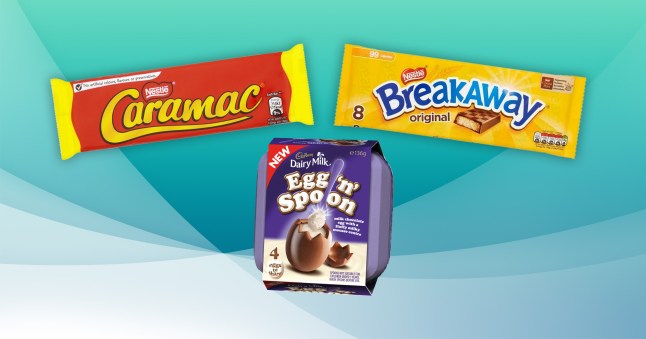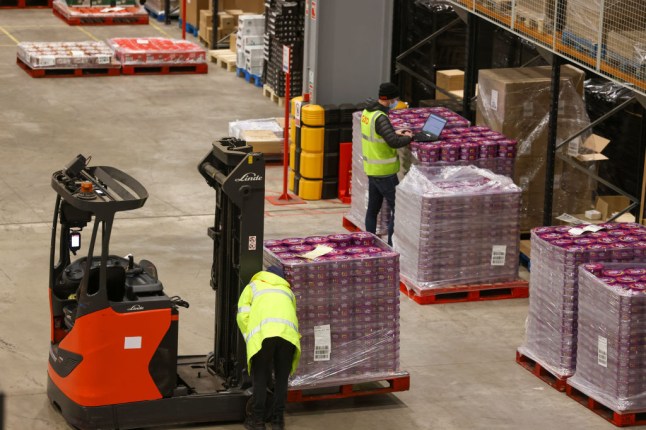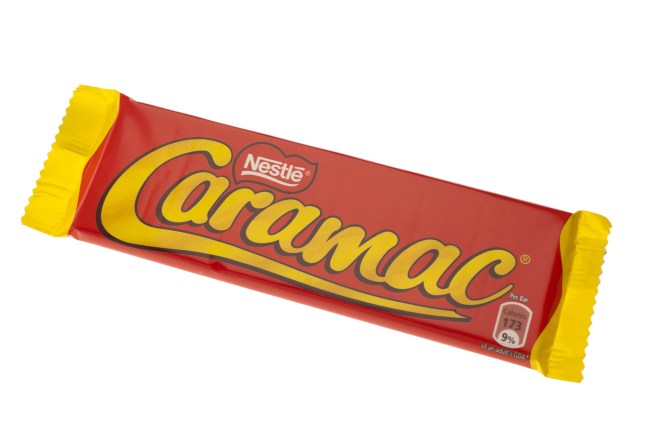
It’s been blow after blow for chocolate fans over the last few months, as chocolate bars have been axed left, right, and centre.
First Nestlé discontinued Animal bars, a childhood favourite, then they took Caramac. (We’re still not over it.)
If that wasn’t enough, last week we lost a few more of their treats, with Breakaway and Yorkie Biscuit Bars biting the dust.
Cadbury also recently confirmed a number of products were no longer being made, including Dairy Milk 30% Less Sugar, The Dairy Milk Egg ‘n’ Spoons, and the Peanut Caramel Crisp bar.
There are numerous reasons as to why a brand might find themselves struggling right now and needing to reduce their output — from the rising cost of cocoa, which hit an all-time high last Friday (February 9), to climate change impacting the supply of it.
But it seems ultimately, in Nestlé’s case especially, we only really have ourselves to blame.

Why are chocolate bars being discontinued?
The cost of living crisis has meant that shoppers are having to make tougher choices about how they spend their money, and ultimately this is what Nestlé has fallen victim to.
The food and drink company blamed falling sales for the disappearance of some of these iconic sweet treats, with a spokesperson tells Metro.co.uk: ‘We are very sorry to disappoint fans of Caramac, Breakaway and Yorkie Biscuit bar. There has been a steady decline in their sales over the past few years and unfortunately we had to make the difficult decision to discontinue them.
‘We know fans are disappointed to see them go, but this change will enable us to focus on our best-performing brands, as well as develop exciting new innovations to delight consumers’ taste buds.’
Cadbury also said something similar when axing the Egg ‘n’ Spoon, claiming ‘fans’ changing taste buds’ was the reason it was discontinued last Easter.

Chocolate consultant Dom Ramsey agrees that we, or more specifically our taste buds, played a key role in the demise of Caramac.
If you’ve been mourning the loss of it and signing petitions to bring it back, then he wants you to ask yourself a crucial question…
He tells Metro.co.uk: ‘Tastes change and products like Caramac and Breakaway just aren’t as popular as they once were. We might have fond childhood memories of them, but how many of us still buy them regularly?
‘When you factor in those cost increases, at some point it’s just not viable to go through an expensive reformulation or relaunch of a product the public just aren’t buying any more. From a business point of view, it’s better to spend that money developing new and exciting products that are going to catch the public’s imagination.’
Dom cites Cadbury as a great example of a company that has ‘worked hard’ to keep their core brand alive by introducing a plethora of flavour variations.
‘They are all launched with a fanfare, but they are also quickly replaced, sometimes after only a matter of months. Perhaps our craving for the next new and exciting product outweighs our nostalgia for the older, simpler chocolate bars,’ he adds.

But before you freak out over all this, the blame doesn’t solely rest on your shoulders, as there are, of course, other factors at play here.
Vhari Russell, the founder of The Food Marketing Experts, explains that the retail market is facing an ‘extremely challenging’ time right now and that brands will be under pressure from supermarkets, who often have a strict ‘one in, one out’ policy for the products they stock.
‘Brands have to look at the numbers and reduce ranges to accommodate the financial pressures they are under, this combined with retailers’ shelves not getting any bigger,’ she tells Metro.
‘Many retailers offer a one in one out on shelf policy so you have to hit the numbers to stay on the shelf.
‘Retailers are under pressure to ensure they have products for everyone’s pockets and this will normally come in the form of branded and own-brand products. The market is extremely challenging at the moment.’

Vhari highlights how the removal of chocolate at till points in supermarkets has also had an effect on sales, by changing consumer spending habits. Instead of stocking up on junk food, many are now trying to make healthier choices.
This is something that was recently reflected in research from HelloFresh. According to their latest trends report, half of Brits are looking to prioritise healthier eating in 2024, and as such ultra-processed foods are being cut out of diets.
As such they claimed other nostalgic treats, such as turkey dinosaurs and potato smileys could also be going ‘extinct’ this year, as families opt for ‘good mood foods’ to help boost mood and wellbeing instead.
Though Nestlé insists the price of cocoa wasn’t a contributing factor in the discontinuation of its products, it’s definitely something to think about, as it’s a major issue for the wider chocolate industry, and could possibly lead to more treats disappearing soon.
Vhari warns that chocolate manufacturers are likely to keep being challenged over the coming months due to supply chain issues.
More Trending
These include global warming affecting crop sizes, stability in the countries supplying cocoa products, market price fluctuations,routes to the UK becoming tricky and cost of containers going up, increased energy prices for manufacturers and increased labour costs.
She adds: ‘In previous years, chocolate has been an everyday food choice for many, but maybe with the cost increasing it will become more of a treat.
‘If climate change does continue the supply of cocoa will be affected and the prices will continue to rise. So we need to enjoy chocolate with that in mind.’
So there you have it folks, if you’re craving a particular sweet treat, go out and buy it. You’ll thank yourself later.
Do you have a story to share?
Get in touch by emailing MetroLifestyleTeam@Metro.co.uk.
MORE: Nestlé fans rejoice as ‘all-time favourite’ limited edition chocolate bar returns
MORE: Can you guess which discontinued chocolate shoppers have found in Home Bargains?
MORE: Aldi shoppers rave about £1.79 swap for discontinued Cadbury treat












